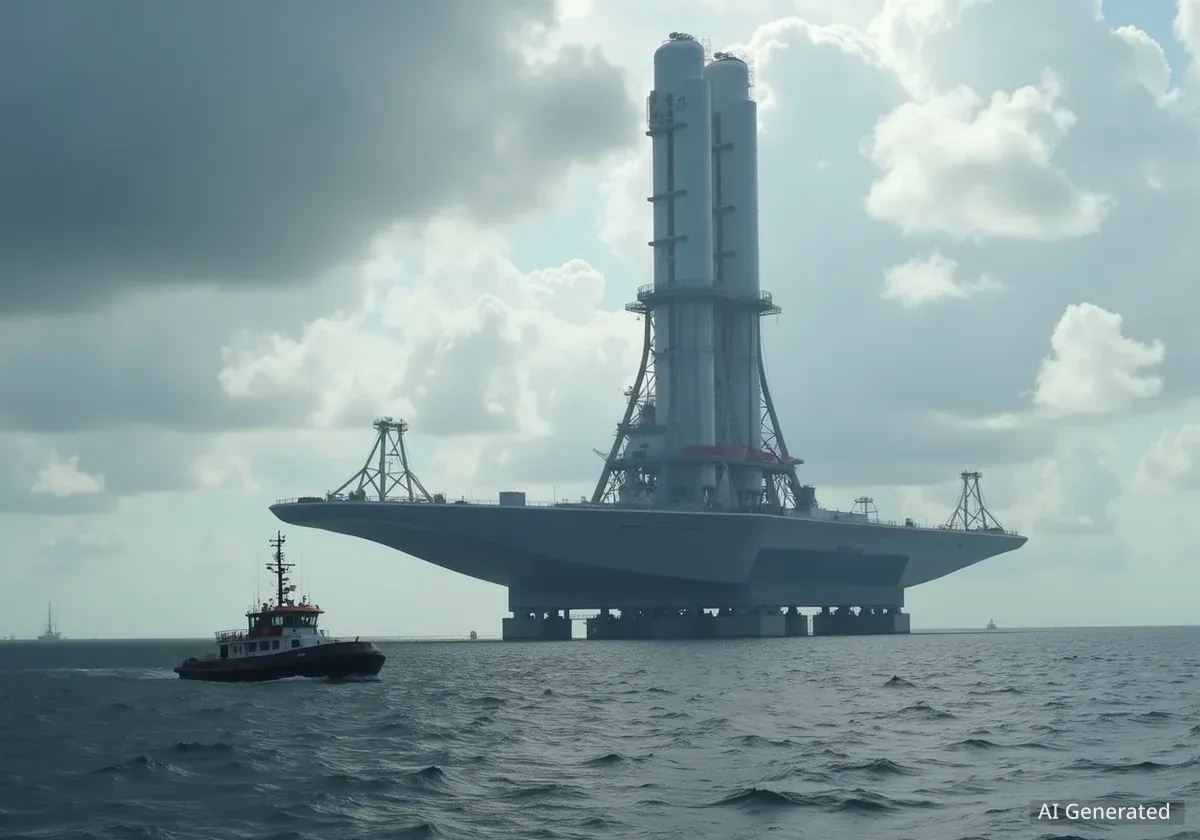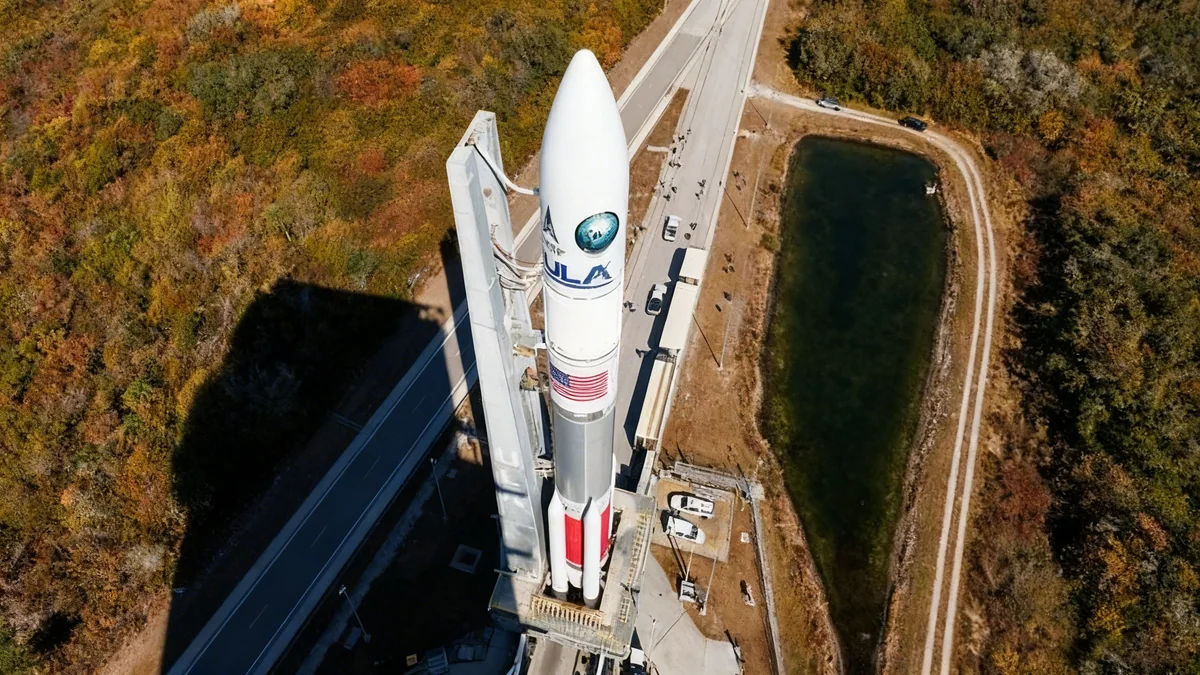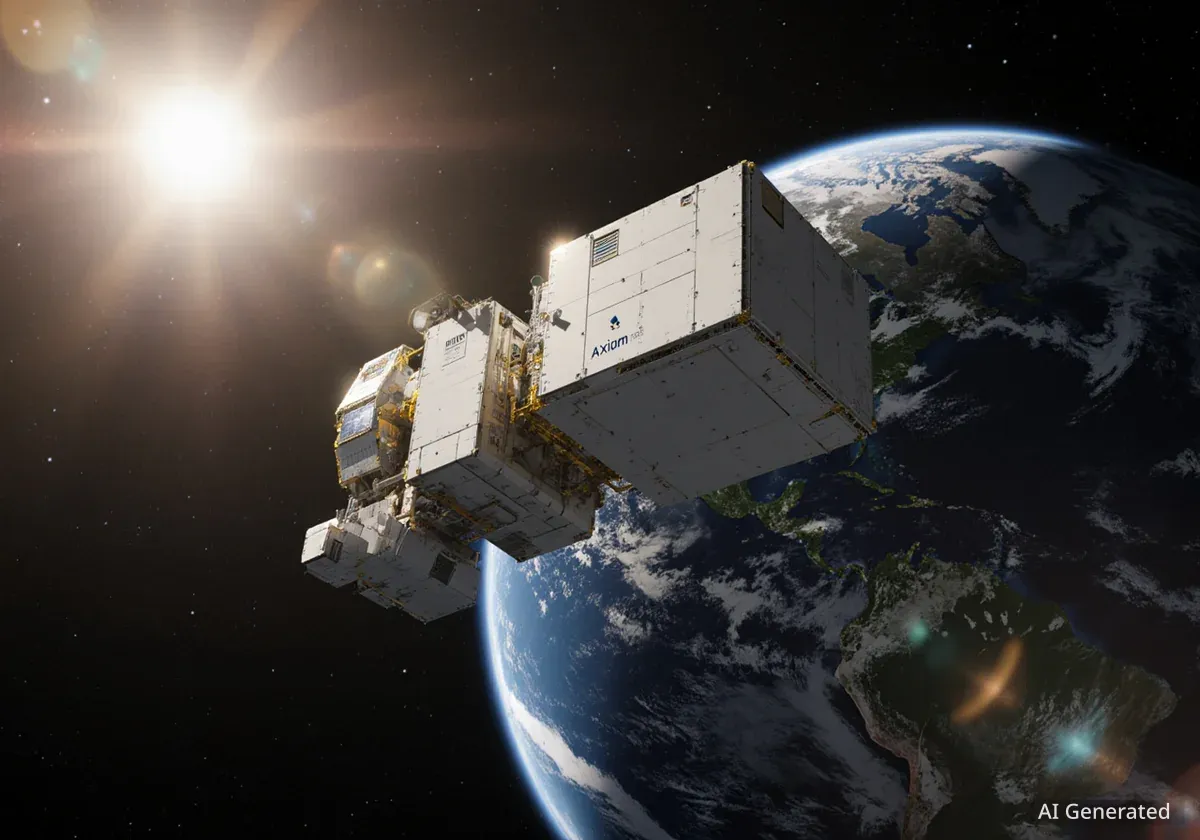Seagate Space, a Florida-based aerospace company, is developing mobile, offshore platforms for rocket launches and has identified the coast of Jacksonville as a potential future site. The initiative aims to increase launch availability and safety by moving operations out to sea, though no specific launches are currently scheduled for the area.
Key Takeaways
- Seagate Space is designing mobile, semi-submersible platforms for launching rockets from the ocean.
- Jacksonville, Florida, is being considered as a future operational area due to its strategic value as a logistics hub.
- The company states that offshore launches could improve safety, reduce congestion at land-based spaceports, and minimize environmental impact on coastal areas.
- Construction of the first platform is targeted to begin by mid-2026, with the first launches projected by the end of that year.
A New Approach to Space Access
The concept of launching rockets from the ocean is moving closer to reality. Seagate Space is pioneering the development of what it calls the Gateway-S, a mobile, ocean-going vessel designed to serve as a launchpad. This approach is intended to address growing congestion at traditional launch sites like Cape Canaveral.
By operating in international waters, these platforms can offer more flexible launch schedules and trajectories. Sean Fortener, Chief Operating Officer for Seagate Space, explained that the goal is to provide a new layer of infrastructure for the burgeoning space industry.
Relieving Spaceport Congestion
Land-based spaceports in the United States, particularly in Florida, are experiencing unprecedented demand. With a growing number of commercial companies like SpaceX, Blue Origin, and United Launch Alliance competing for launch windows, the infrastructure is under significant strain. Offshore platforms offer a potential solution to expand national launch capacity without requiring new coastal land development.
The company's vision is to create a network of these platforms that can be positioned where launch demand is highest. This mobility is a key feature, distinguishing it from fixed, land-based facilities and offering a dynamic solution to the industry's logistical challenges.
The Gateway-S Platform Explained
The proposed launch platform, named Gateway-S, is a semi-submersible vessel. This design allows it to maintain stability in open ocean conditions, a critical requirement for safely launching multi-ton rockets. Fortener described the platform's adaptability as central to the company's value proposition.
"Our platform is not fixed to any one location... That flexibility is central to our value proposition which allows us to operate where demand is greatest without being tied to a single geography," Fortener stated.
This design allows the platform to service various clients and launch inclinations without being restricted to a single geographic area. The company aims to begin construction on its first vessel by the middle of 2026, with an ambitious goal of conducting initial launches by the end of that same year.
Project Timeline
- Platform Construction Start: Mid-2026
- First Rocket Launch Goal: Late 2026
This timeline highlights the company's aggressive schedule to enter the commercial launch market.
Why Jacksonville is a Strategic Candidate
While no launches are currently planned for the Jacksonville coast, Seagate Space has expressed strong interest in the region. The city's status as a major logistics hub is a primary factor. Its extensive port facilities, railway connections, and interstate highway access make it an ideal location for transporting large rocket components and support equipment.
Furthermore, Jacksonville is already home to Cecil Spaceport, a licensed horizontal launch site. The presence of existing aerospace infrastructure and a skilled workforce adds to the city's appeal.
"Due to Jacksonville's strategic positioning for the logistics industry, we are highly interested in growing our presence here in the future," Fortener confirmed.
Establishing an operational presence near Jacksonville would allow Seagate Space to tap into this logistical ecosystem, potentially streamlining the process of assembling rockets and preparing them for offshore deployment.
Addressing Environmental and Logistical Questions
The proposal of launching rockets from the ocean raises important questions about environmental impact and operational safety. Local residents have voiced concerns about potential effects on marine life, including sea turtles and the broader ocean ecosystem.
Seagate Space has stated that environmental stewardship is a core commitment. The company is actively working to address these concerns. According to Fortener, moving launches offshore is intended to reduce potential impacts on fragile coastal ecosystems that are often near land-based spaceports.
Environmental Research Partnership
To better understand its environmental footprint, Seagate Space has partnered with the University of South Florida's College of Marine Science. The company has applied for grant funding to conduct a comparative study on the environmental effects of rocket recovery from sea-based platforms versus traditional coastal methods.
Logistical questions, such as how rockets would be transported to the platform and how stability would be maintained, are also being addressed through the semi-submersible design. The platform is engineered to handle the complex dynamics of a rocket launch in a marine environment.
Public Reaction and Future Outlook
The prospect of watching rocket launches from local beaches has generated a mix of excitement and curiosity among Jacksonville residents. For some, like local beachgoer Cathy Hughes, whose stepson works for NASA, it represents a convenient alternative to traveling to the Space Coast.
"It'd be a lot easier to come five miles down to the beach and watch, especially a night launch, that would be cool," Hughes commented, while also noting ecological concerns.
Others see the potential for a significant boost in tourism and local interest. "I think it would bring a lot more people to the beach," said Isaiah Gompers, a visitor to Jacksonville Beach. The visual spectacle of a launch could become a new attraction for the city.
As Seagate Space moves forward with its plans, the company will need to balance technological development with regulatory approvals and community engagement. If successful, the waters off Jacksonville could one day become a gateway to orbit, transforming the city's relationship with the final frontier.





